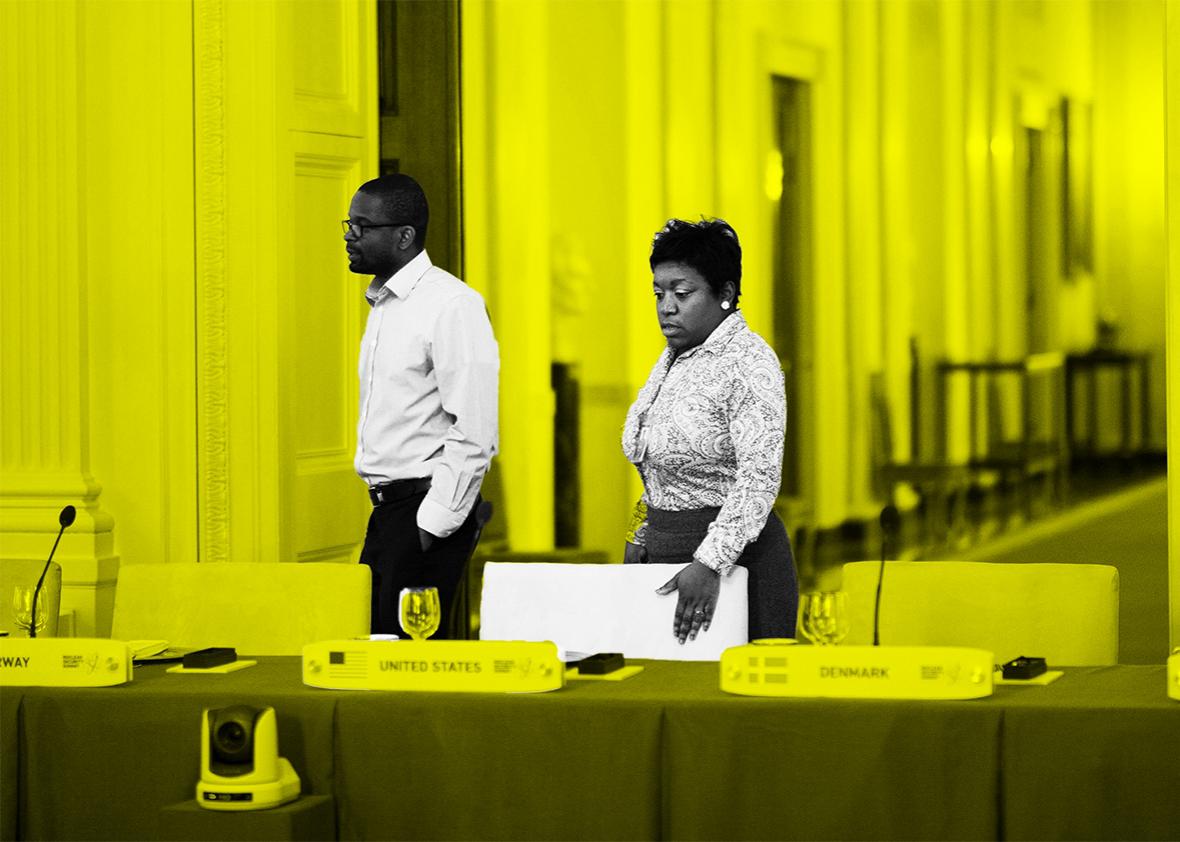Listen to this episode of Working with guest Gregory Lorjuste:
Subscribe in iTunes ∙ RSS feed ∙ Download ∙ Play in another tab
Slate Plus members: Get your ad-free podcast feed.
Outside of Gregory Lorjuste’s office, there’s a whiteboard that he updates each day in large, carefully drawn characters. On the afternoon we visited him, it read, “The Final Countdown: 189 Days,” a reflection of the time remaining for the Obama administration. That constantly shrinking figure holds special importance for Lorjuste, who serves as deputy assistant to the president and director of scheduling. Lorjuste and his team work out the president’s day-to-day itinerary, often breaking it down by the minute. But they’re also responsible for larger calculations, most of all for figuring out how the administration can best use the time that remains.
In this episode of Working, Lorjuste spoke to us about both the minutiae of those efforts, as well as the broader issues he has to take into account each day. He explained how he works through the scheduling proposals that pass over his desk, amending them as necessary to ensure that they correspond with practical realities. That understanding is built on hard-won knowledge, a knowledge developed in part through years on the road, since Lorjuste lives many of the president’s trips before they happen—to make sure that each step coheres with the office’s plans and expectations.
Though Lorjuste’s schedules have to be almost mechanically precise, he still strives to take human considerations into account. “I’m scheduling the president of the United States, but I’m also scheduling Barack Obama, the father, the husband, the sports enthusiast,” he told us, before acknowledging, “We try not to schedule something … at the same time that there’s a key game going on.” But schedules also hold a personal—and often emotional—weight for Lorjuste, who has organized trips through communities that he’s personally seen devastated by violence.
Lorjuste reckons with a similar intensity when he and his team have to adjust their carefully constructed plans to deal with an unfolding tragedy, as they did in the wake of the shootings in Dallas. “The logistics of how we’re going to get the president there will be worked out. We’ve been doing it for close to eight years,” he said. More difficult is figuring out how to do that in a way that doesn’t make already fraught situations more trying for all involved. There’s pain on such days, he said, but also “a sense of glory at the same time, because we know the message people hear will help.”
Though Lorjuste is still focused on the days that remain, he also took a little time while we spoke to reflect on the things he’s lived through over the last eight years, telling us about some of the trips that he’s gone on with, and for, the president. Those are experiences that have shaped his own philosophy of time: “Once a second has passed, you don’t get it again.”
Then, in a Slate Plus extra, Lorjuste told us about planning the inauguration in 2009. If you’re a member, enjoy bonus segments and interview transcripts from Working, plus other great podcast exclusives. Start your two-week free trial at slate.com/workingplus.
Email: working@slate.com
Twitter: @Jacob_Brogan
Podcast production by Mickey Capper.
